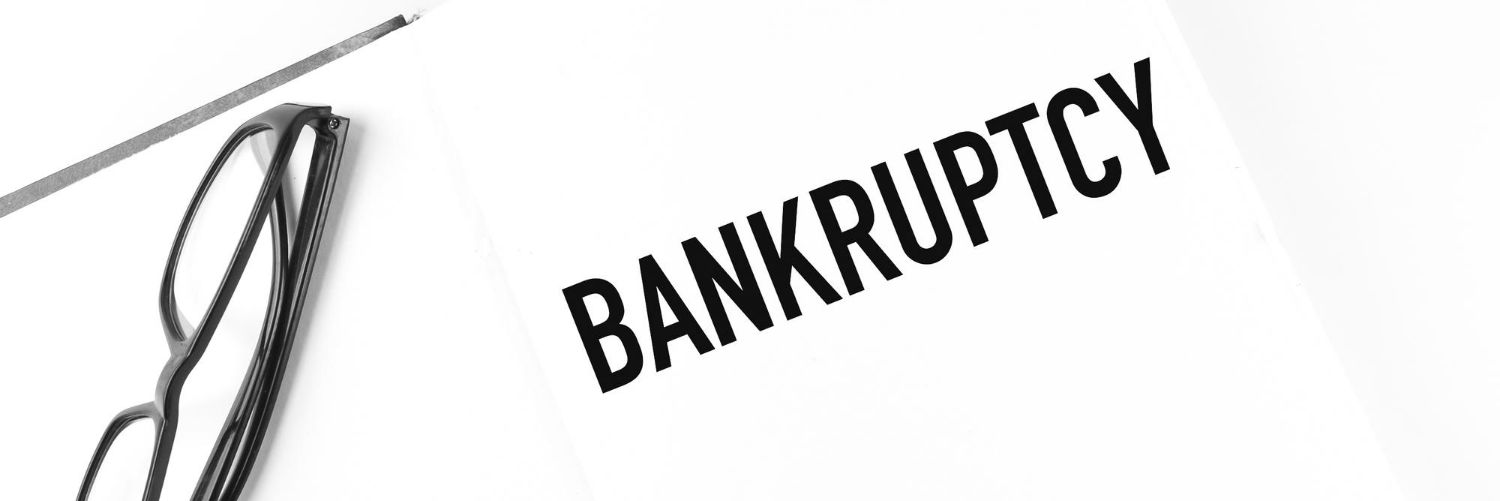Weekly Mass Torts Bulletin 2023-February-6
J&J's Court Loss Jeopardizes Texas Two-Step Plan

A court defeat for Johnson & Johnson jeopardizes a legal strategy devised by a few of the world's most successful firms to combat the litigation.
A federal appeals court in Philadelphia found that J&J is too affluent to file for bankruptcy in order to settle over 40,000 cancer claims related to their baby powder. The corporation has promised to appeal in order to retain a legal strategy known as Texas Two-Step, which has been explored by industrial juggernaut 3M Co. and forestry behemoth Georgia-Pacific.
A three-judge court tossed out J&J's approach, which sided with cancer patients, after spending more than $100 million in legal expenses. The judges decided that J&J bankrupted a specifically constructed company, LTL Management, in order to prevent juries from hearing the complaints throughout the country. The decision pushed J&J shares down 3.7%, their lowest day since June 2020.
J&J, 3M, and Georgia-Pacific have adopted a technique that involves shifting billions of dollars in legal claims to tiny companies, which subsequently apply for Chapter 11 bankruptcy protection. The parent firms undertake to pay all creditors of those subsidiary entities, even those that seek payment. While the units are under court protection, the parents attempt to halt the litigation and reach an agreement.
In a Chicago appeals court, 3M is seeking to block 230,000 claims filed by current and former troops who say their hearing was harmed by earplugs sold by the firm to the US military. Georgia-Bestwall Pacific's division is defending customers who claimed asbestos in the company's products poisoned their lungs in bankruptcy court in Charlotte, North Carolina.
J&J must now defend itself against allegations that the tainted talc in their baby powder causes cancer. Before J&J was ordered to pay out more than $2 billion to a group of victims, the business lost numerous similar lawsuits, including one that was challenged all the way to the US Supreme Court.
The ruling is not binding on the 3M or Georgia-Pacific cases, but attorneys believe that the basic message that profitable firms should not use bankruptcy to settle disputes will influence the courts overseeing them.
This is because the J&J decision comes from a court with extensive expertise in bankruptcy cases resulting from judgments. For decades, corporations that manufactured asbestos-containing products filed for bankruptcy in Delaware and New Jersey under Chapter 11 procedures that permitted them to continue functioning while settling with hundreds of thousands of victims who had sued them. Some of the biggest asbestos bankruptcies ever filed were heard by the federal appeals court in Philadelphia, which reviews appeals from those courts.
The primary distinction is that corporations such as chemical manufacturer WR Grace and car parts company Federal-Mogul said they couldn't afford to fight asbestos litigation, so they declared bankruptcy to deal with what's known in the industry as a mass harm exposure.
Only corporations who are immediately confronted with financial difficulty can petition for bankruptcy, according to Philadelphia judges. The judges held that because J&J never claimed to be in urgent danger, it cannot utilize Chapter 11 bankruptcy to place a subsidiary under court protection.
J&J stated in a statement that it will appeal the verdict. According to the corporation, the bankruptcy was filed in good faith in order to properly address the talc claims. According to a business spokeswoman, 3M is still attempting to settle the earplug cases through court-ordered mediation. Georgia-Pacific is owned by Koch Industries, which did not respond to queries seeking comment.
J&J might ask that the verdict of the three-judge panel be reconsidered by all Philadelphia appellate court justices. The corporation might potentially petition the US Supreme Court to consider its reasons for allowing the Chapter 11 lawsuit to proceed.
Following its significant setback in the talc litigation, J&J devised a new legal strategy to keep the claims from going to trial and compel the plaintiffs to settle in the LTL Chapter 11 case. J&J has always maintained that there is no convincing scientific evidence linking its baby powder to cancer. The firm said that the LTL lawsuit was the only method to control the expenses of the talc litigation and ensure that victims were adequately compensated.
The LTL bankruptcy was Texas' Two-first steps to reaching an appeals court. Some legal academics and members of Congress have criticized J&J's method since the corporation gained a substantial advantage from Chapter 11 regulations, a stay of litigation, without declaring for bankruptcy, where it would be subject to court scrutiny of its spending and other operations.
J&J's Bankruptcy Case Tossed By US Appeals Court

A US appeals court has found that Johnson & Johnson's use of bankruptcy to deal with growing talc litigation would create a legal blind zone.
The Third Circuit Court of Appeals overturned an earlier bankruptcy court ruling, ordering the dismissal of J&J's subsidiary LTL Management's Chapter 11 case.
Faced with more than 38,000 lawsuits alleging that its talc-based products caused cancer, J&J split off its talc liabilities into a new business called LTL Management and filed for bankruptcy in October 2021, a contentious process is known informally as a "Texas two-step" bankruptcy. Claimants claimed that the technique violated the US bankruptcy code.
Because the debtor in this case was not in financial hardship when it sought Chapter 11 protection. Ignoring a parent's (and grandparent's) safety net, which shields them from any culpability, would allow tunnel vision to create a legal blind spot. We will not do so, the court rules.
J&J's baby powder products were initially released in 1984, and hundreds of millions of people have used them. Although J&J asserts that it has never developed a product that contains asbestos, questions regarding whether the powder contained asbestos initially surfaced in the 1970s. According to court records, there were a limited number of isolated allegations up to 2010 that the talc products caused diseases such as mesothelioma and rashes.
However, two jury judgments in favor of plaintiffs in 2013 and 2016 triggered a flood of lawsuits alleging that the goods caused mesothelioma and ovarian cancer. By the time LTL Management declared bankruptcy, it had received almost 38,000 ovarian cancer claims.
J&J ceased producing talc goods in the United States in 2020, claiming decreased sales due to changes in customer behavior and exacerbated by misconceptions about the product's safety. The firm said in August that it will update the composition of its baby powder products while maintaining that its talc-based powder is safe, does not contain asbestos, and does not cause cancer.
In May, an appeals court decided to hear the bankruptcy case again. J&J previously said that all talc products will be phased out worldwide by 2023.
According to a lawyer representing mesothelioma plaintiffs in a class action suit, the Third Circuit's judgment is a point-by-point rejection of J&J's attempt to distort the bankruptcy system and violate all Americans' constitutional right to a jury trial. The Third Circuit's ruling reaffirms that the bankruptcy system is not a tool for the rich, no matter how much money they are willing to spend on lawyers.
Meanwhile, J&J defended its policy, noting in a statement that LTL began this process in good faith and that the company's goal has always been to equitably address claims connected to cosmetic talc litigation.
Today's verdict does not reflect the facts established at the Bankruptcy Court's trial regarding the validity of LTL's establishment and filing, the firm said, adding that it will contest the new ruling.
If the complete panel of judges rejects J&J's case, the business has the option of petitioning the Supreme Court. In October 2021, the pharma titan said that it had spent roughly $1 billion in defense expenditures and $3.5 billion on settlements and verdicts. J&J said that those expenditures were unsustainable and that Chapter 11 was required to analyze, settle, and manage these claims efficiently and equitably.
Pending 40 Zantac Suits Consolidated For Pretrial Litigation

A panel of New York courts has decided to hold merged pretrial proceedings in the state for at least 40 identical petitions already filed alleging that the recalled heartburn medication Zantac caused users to get cancer.
Zantac (ranitidine) was taken off the market in late 2019 when it was determined that the active pharmaceutical component is inherently unstable and creates large quantities of the chemical byproduct N-Nitrosodimethylamine (NDMA), which is a powerful human carcinogen.
More than 100,000 Zantac lawsuits have been filed against GlaxoSmithKline, Boehringer Ingelheim, Pfizer, Sanofi, and other manufacturers, distributors, and retailers involved in the sale of brand name or generic ranitidine pills by former users who claim they were diagnosed with bladder cancer, esophageal cancer, liver cancer, pancreatic cancer, stomach cancer, or other injuries as NDMA moved through their bodies.
Given the same factual and legal issues addressed in claims filed throughout the federal court system, the Zantac lawsuit was concentrated in the United States District Court for the Southern District of Florida for coordinated discovery and pretrial procedures. However, on December 6, the court made an unexpected order, deciding that all of the plaintiffs' expert witnesses were barred from testifying at trial under federal causation evidence admissibility rules.
As a result of the judgement, federal claimants will be unable to prove that the recalled Zantac tablets caused their cancer, and all Zantac litigation currently in federal court will be dismissed.
The federal decision, however, has no bearing on litigation brought in various state courts, where varying requirements for admissibility of expert witness testimony apply. The New York State Litigation Coordinating Panel decided yesterday that 40 Zantac claims be consolidated in New York County for pretrial proceedings. While no Coordinating Justice has been appointed to handle the lawsuit, all ongoing processes have been halted until one is.
In complex product liability litigation, where a large number of claims raise similar allegations against the manufacturers of similar products, it is common for the claims to be consolidated so that the parties can reduce duplicative discovery that would otherwise be repeated across a large number of claims, avoid conflicting pretrial rulings, and serve the convenience of common parties and witnesses.
Like a federal multidistrict litigation, but at the state level, the cases filed in the New York mass litigation will remain independent claims, and if no resolution or settlement agreement is reached following pretrial proceedings, each case will be tried individually in its originating New York state court district.
There are an estimated 50,000 Zantac lawsuits pending in state courts across the United States, with the first cases scheduled to go before jurors in various locales in 2023. Additional Zantac trials in California state courts are slated to commence later this year, with cases scheduled to go before jurors on May 1, 2023, August 7, 2023, and October 23, 2023.
These trials will be closely followed by all parties engaged in the action, and they may serve as a "bellwether" to assist predict how jurors will react to certain evidence and testimony that will be repeated across the other state court proceedings.

